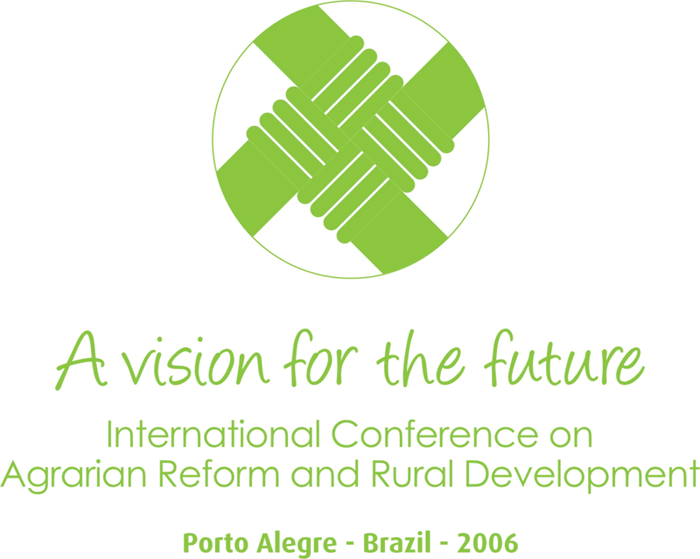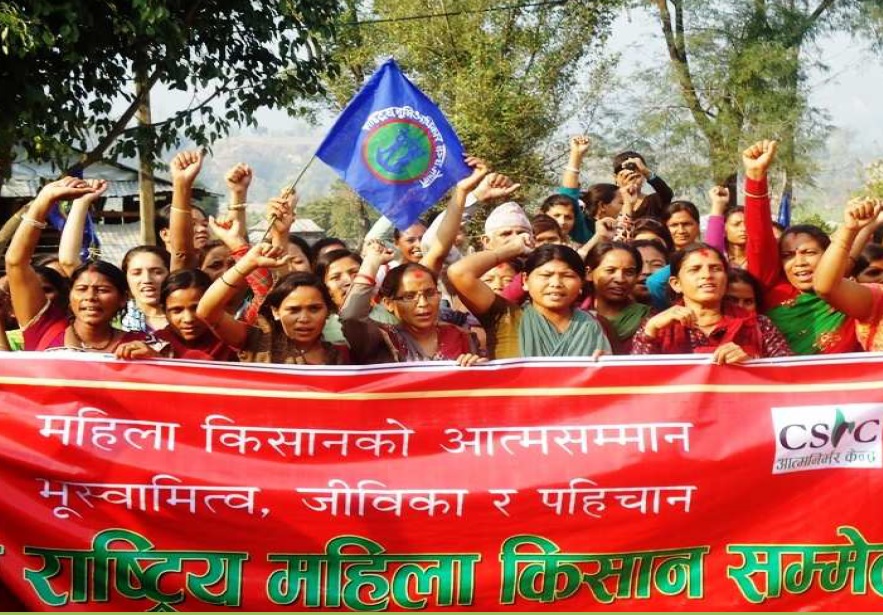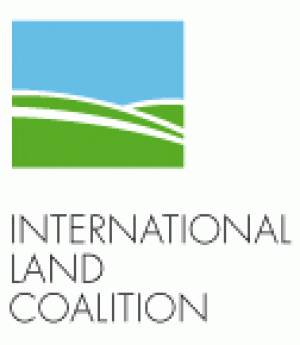The G8 and Land Grabs in Africa
GRAIN
The G8 countries are implementing a New Alliance for Food Security and Nutrition in six African countries that will facilitate the transfer of control over African agriculture from peasants to foreign agribusiness.
Read the full article Here
Social and Environmental Impacts of Agricultural Large-Scale Land Acquisitions in Africa
Rights and Resources Initiative
“We who live here own the land” - Customary Land Tenure in Grand Cape Mount, and Community Recommendations for Reform of Liberia’s Land Policy & Law
Communities of Grand Cape Mount, Liberia
March 25th, 2013
ICARRD Resources
The International Conference on Agrarian Reform and Rural Development took place in Porto Alegre, Brazil in 2006. A summary Final Report on the conference can be found Here. Attached are the resources, presentations, and papers from the conference.
Land concentration, land grabbing and people’s struggles in Europe
European Coordination Via Campesina and Hands Off the Land Network
Second National Conference of Women Farmer 2013
The Second National Conference of Farmer Women was held from 3-5 March, 2013 at Thimura,Chitwan with the participation of 162 women from 48 districts of Nepal. The conference wasorganized with focused discussion on 'Women's Land Ownership and Identity’. The conferencewell speculated the women's issues by announcing the action point. The conference wassuccessful in raising the voice of land-poor and women farmer in the domain of ensuringequitable land rights.
Rapport de synthèse: «L’aspect genre dans le processus de réforme foncière»
Rapport de synthèse: project de recherche conjointe ILC-SIF-Intercoop/SAHA-PNF
Le but de ce projet de recherche conjointe était de renforcer la connaissance thématique sur les groupes vulnérables, particulièrement les femmes, dans la réforme foncière. Les recherches comprenaient des visites sur le terrain pour enquêter de femmes et d’hommes, en groupes et dans ménages spécifiques ainsi que le personnel des guichets fonciers.
Land in Tanzania
- "Land Reform in Tanzania" is a detailed review of the Land and Village Land Acts of 1999.
- "The formalisation process in Tanzania" is a historical perspective on formalisation of land tenure and a critical review of the De Soto programme.
- "The politics of land in Tanzania" is an updated version of my D.Phil. dissertation of the topic. It focuses on the policy making behind land policies, and provides a detailed review of the villagisation exercise, plus case studies on the 1983 Agricultural Policy and the 1995 National Land Policy.
National Forest Plan 2002.
The Goal of the present cross-sectoral National Forest Plan (NFP) is formulated as follows: “An integrated forest sector that achieves sustainable increases in economic, social and environmental benefits from forests and trees by all the people of Uganda, especially the poor and vulnerable”.The objectives of the NFP are: 1) To raise the incomes and quality of life of poor people through forestry developments, targeting sustainable livelihoods amongst small-scale, mainly rural stakeholders, with strategies based on-farm, in natural forests or off-farm; 2) To increase economic productivity an
Uganda Forestry Policy 2001.
The overall Vision of the present cross-sectoral Forest Policy is formulated as follows: “A sufficiently forested, ecologically stable and economically prosperous Uganda”. Part 2 concerns Guiding Principles for the Forest Sector building on the government's national development priorities of poverty eradication and good governance.
Forestry Strategy to the Year 2020.
The Vision of the present cross-sectoral Forestry Strategy 2020 (FS2020) establishes that by 2020, the Government of the Lao PDR envisages a sizeable, vigorous and robust forestry sector continuing in its role as one of the leading sectors advancing national socio-economic development. A sector in which scientifically-managed natural production forests generate timber and non-timber products at sustainable levels with village participation, under supervision and technical support from well-staffed, well-trained local and national government units.










